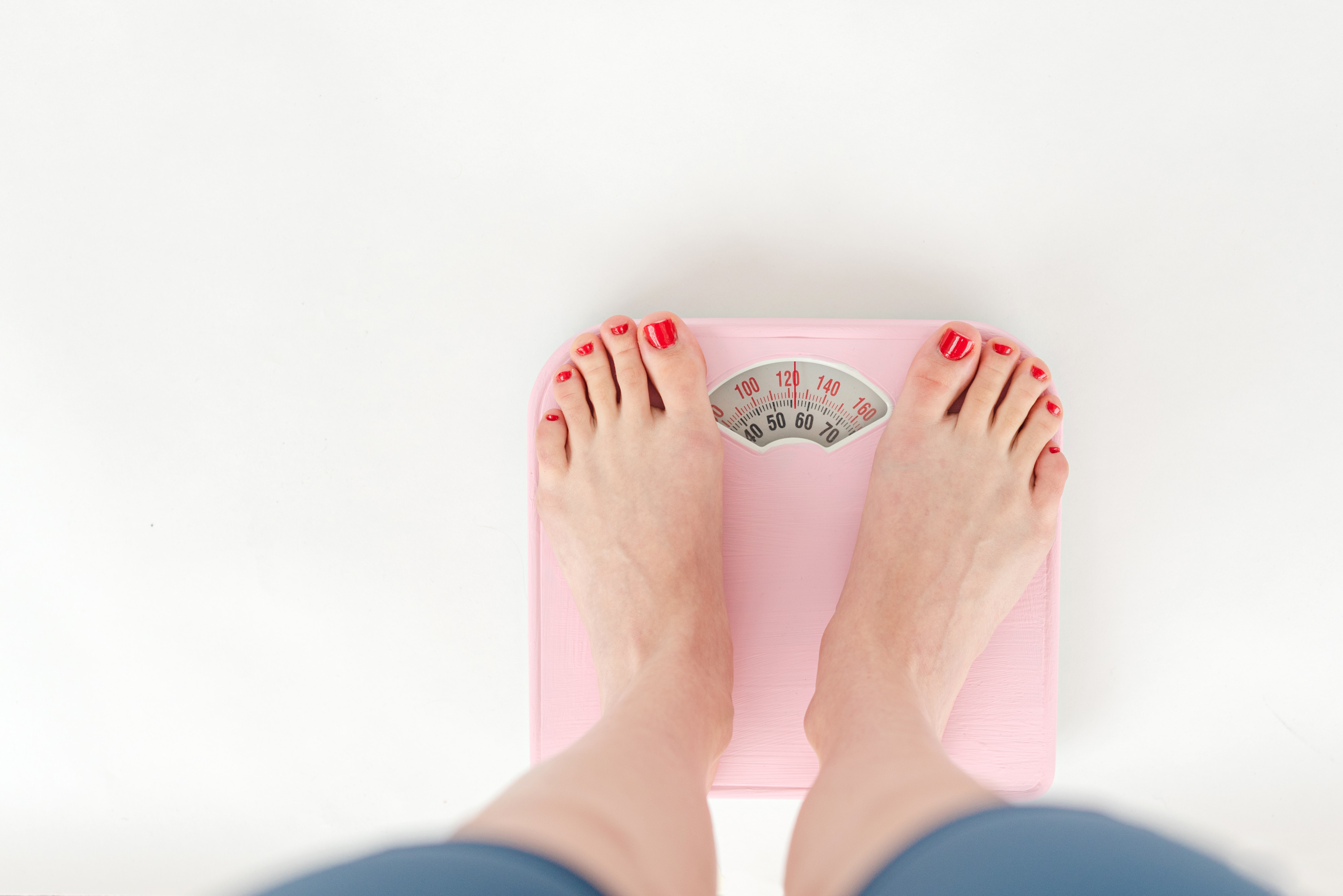Many women fear midlife weight gain and see gaining weight to be inevitable during menopause. But can midlife weight gain be avoided?
In this extract from Nancy Clark’s Sports Nutrition Guidebook we explore the potential causes of weight gain within menopausal women and how to potentially avoid it.
Will I gain weight during menopause?
Women do not always gain weight during menopause. Women ages 45 to 50 commonly get fatter and thicker around the middle as fat settles in and around the abdominal area. However, the majority of these changes are caused by aging, a lack of exercise, and a surplus of calories—not simply a drop in estrogen (Kapoor, Collazo-Clavell, and Faubion 2017). In a three-year study of more than 3,000 women (initial age 42 to 52 years), the average weight gain was 4.6 pounds (2.1 kg). The weight gain occurred in all women, regardless of their menopause status (Sternfeld et al. 2004). Let’s explore a few of the culprits that affect weight in middle-aged women.
Reduced activity levels
Menopause occurs during a time when a woman’s lifestyle usually becomes less active. If your children have grown up and left home, you may find yourself sitting more in front of a TV or computer screen than running up and down stairs, carrying endless loads of laundry. A less-active lifestyle not only reduces calorie needs but also results in a decline in muscle mass; when women (and men) age, they tend to lose muscle mass unless they do regular strength training. Muscle influences the metabolic rate, so less muscle means a lower metabolic rate and fewer calories burned.
Lack of sleep
Another problem is that sleep patterns commonly change in midlife, often as a result of issues such as night sweats and partners who snore. Many women end up feeling exhausted most of the time. Exhaustion and sleep deprivation can easily drain motivation to routinely exercise, and this perpetuates more muscle loss and increases the drop in metabolism.
Sleep deprivation itself is also associated with weight gain. Adults who sleep less than seven hours per night tend to be heavier than their well-rested counterparts. When you are sleep deprived, your appetite grows. The hormone that curbs your appetite (leptin) is reduced, and the hormone that increases your appetite (ghrelin) becomes more active (Taheri et al. 2004). Hence, you can have a hard time differentiating between being hungry and being tired. In either case, cookies and chocolate can be very tempting.
Opportunity
Menopause may also coincide with career success, including business meals at nice restaurants, extra wine, plush vacations, and cruises. That can mean more calories and less exercise. By midlife, most women are tired of dieting and depriving themselves of tempting foods; they may have been dieting since puberty. The “No, thank you” that prevailed at previous birthday parties now becomes “Yes, please.”
How to prevent weight gain during menopause
The best way to minimize, if not prevent, weight gain is to exercise regularly, eat wisely, limit calories from alcohol, get enough sleep, and maintain an active lifestyle. Research suggests that women who exercise do not gain the weight and waist of their nonexercising peers (Sternfeld et al. 2004). The optimal exercise program includes both aerobic exercise (to enhance cardiorespiratory fitness) and strengthening exercise (to preserve muscles and bone density).
Despite popular belief, taking hormones to counter the symptoms of menopause does not contribute to weight gain. If anything, hormone replacement therapy may help curb midlife weight gain (Davis et al. 2012).
Read more in Nancy Clark’s Sports Nutrition Guidebook.
References
Davis, S., C. Castelo-Branco, P. Chedrual, M. Lumsden, R. Nappi, D. Shah, P. Villaseca, and Writing Group of the Society from World Menopause Day 2012. 2012. Understanding weight gain at menopause. Climacteric 15 (5): 419-429.
Kapoor, E., M. Collazo-Clavell, and S. Faubion. 2017. Weight gain in women at midlife: A concise review of the pathophysiology and strategies for management. Mayo Clin Proc. 92 (10): 1552-1558.
Sternfeld, B., H. Wang, C. Quesenberry, et al. 2004. Physical activity and changes in weight and waist circumference in midlife women: Findings from the study of women’s health across the nation. Am J Epidemiol 160 (9): 912-922.
Taheri, S., L. Lin, D. Austin, T. Young, and E. Mignot. 2004. Short sleep duration is associated with reduced leptin, elevated ghrelin, and increased body mass index. PLoS Med 1 (3): E62.
Header image by SHVETS production


